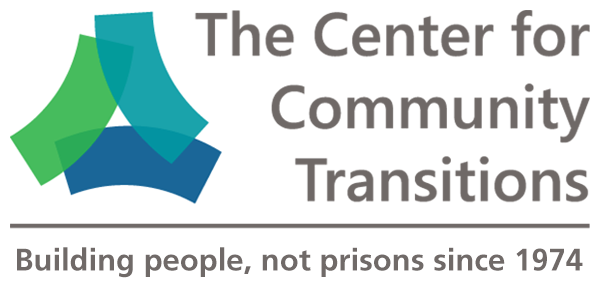Reflections and Resilience: A Year in Review

“In this reflective moment, as we stand at the threshold of yet another year’s end, I am reminded of the profound words of Alice Walker: “Look closely at the present you are constructing: it should look like the future you are dreaming.”
Here we are again at the end of another year, reflecting on the journey we’ve undertaken. This past year marked the first step in our return to a semblance of pre-pandemic normalcy. Streets bustled with activity, businesses thrived, and people reveled in the freedom to experience life outside their homes. Contrary to what many skeptics predicted, society was determined to reclaim the pre-pandemic way of life.
Yet, for us at CCT, our focus remained unwaveringly on strengthening our infrastructure. We recognized the importance of providing essential services in the reentry and second-chance space, especially now, as we witness a growing interest from various sectors, both for profit and for the promise of a second chance.
In our LifeWorks! supportive employment program, we continued to offer workforce development training to formerly incarcerated individuals and those who are justice-involved. This year, we served 250 individuals, with three-quarters of them successfully finding employment. While this represents about half of our pre-pandemic numbers, it reflects the changing landscape of our field as new players enter the space, both a blessing and an opportunity for innovation in our sector. We continue to promote The SHRM Foundation’s Getting Talent Back to Work initiative to reduce barriers and strengthen pathways to employment for people with criminal records, leveraging the power of HR in building diverse and inclusive workplaces that deliver value to people and business.
Our Families Doing Time program saw significant growth and transformation as well. We welcomed a new Program Director who brings a public health perspective to the vital work of addressing the impact of incarceration on families as a public health issue. Thanks to our second round of ARPA funding, we expanded our team and introduced two new programs, Justice Involved Gals and Guys Youth group (JIGGY) and Reentry Adjacent Program (RAP). Additionally, our partnership with Newell Presbyterian Church, supported by Lowe’s, allowed us to move into a beautiful new program space, where our young people and their families gather to learn, unwind, and lighten the burden of their shared experience navigating justice-involvement, including immigration.
At our Center for Women residential work release facility, we continued to provide reentry transition support to women preparing for release from prison. This journey includes navigating reentry in a community-based setting, yet still in the custody of NC Department of Adult Correction (NCDAC), a delicate, albeit transformative path to tread. In the past year, we introduced behavioral health services, now in its second year thanks to Phase I ARPA funding last year. We added peer support specialists to assist residents in their journeys, and we prepared to explore partnerships with organizations that can offer additional support, including substance use recovery services.
We are crafting our present to shape the future we envision, but transformation comes at a cost. Changing systems and structures to create a second-chance community requires the collective commitment of everyone involved. While we receive generous financial support from individuals, contracts, foundations, grants, the faith community, and more, we grapple with challenges such as non-competitive wages and employee retention. The ‘nonprofit starvation cycle,’ as described by the Stanford Social Innovation Review (SSIR), has affected us this year. Nevertheless, anchored by the voices of those who have experienced incarceration firsthand, we stand tall and move forward toward our goal to make Charlotte a true second chance city.
As we anticipate the celebration of our agency’s 50th anniversary next year, I am both awed by the responsibility of upholding half a century of impact and excited by the prospect of guiding our organization toward new horizons. With our board now composed of 50% formerly incarcerated and directly impacted individuals, and a leadership team, each an unapologetic second chance advocate in her own right, we remain unwavering in our commitment to a distributed leadership model that helps us embody shared power at all times. At CCT, we will continue to strengthen our community through second chances, prioritizing building people over prisons.
I invite you to join us as we forge a bold new path into the future, crafting a better tomorrow for all.
Sincerely,

Patrice Funderburg
Executive Director

